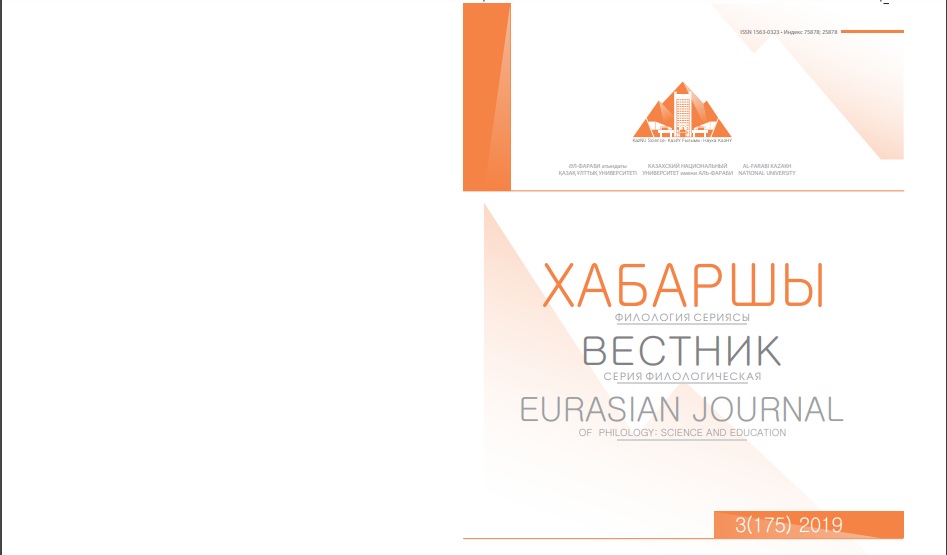Екінші толқын феминистік әдеби сынының теоретикалық тұжырымдамалары
DOI:
https://doi.org/10.26577/EJPh-2019-4-ph1Аннотация
Мақалада 1970 жылдардың әдеби сынында бейнеленген феминистік қозғалыстың
екінші толқыны мен тұстас келген гендерлік зерттеулердің теоретикалық тұжырымдамалары
қарастырылады. Филология ғылымында гендерлік пионерлері құрастырған текстер көрнекті
ғылыми факт бола отыра, қазіргі уақытқа дейін бұл бағыт институцияландырумен даму
процесінде. Әдебиеттанудағы гендерлік зерттеудің классикасы болып табылатын Франция,
Ұлыбритания және АҚШ елдері ғалымдарының еңбектері талданады. Заманауи филология
ғылымының құрылуына себепші болған бұл бағыттың қалай пайда болғаны, түбірі әлеуметтік
мәдениеттен етек жайған патриархаттық идеологияға, дискриминациялық тәжірибеге және
қоғам санасында қалыптасып кеткен таптаурындарға зерттеушілердің қалай қарсы шыққаны
қарастырылады. Қазіргі уақытта гендерлік зерттеу перспективті бағыт болып табылады
Мақала герменевтика және көркемдік тексттің интерпретациясына ауқымды өзгерістер
алып келген гендерлік зерттеу теориясының ұғымдық құрылғысы, әдістемелік құралдарының
қалыптасуымен таныстырады. Мақалада патриархаттық символикалық тәртіппен басым болған
классикалық әдебиетті репрезентативтік тәжірибе негізінде қарастырған С. де Бовуар, Э. Сиксу,
Л. Иригаре, Н. Шор, А. Рич, Э. Шоуолтер, С. Гилберт және С. Губар еңбектері талданады.
Автор әдіснаманың егжей-тегжейлерімен, сыни интерпретация және қарама-қарсы қойылған,
гендерлік дисбалансқа негізделген патриархаттық гендерлік қағидаларға үн тастайтындай
әртүрлі феминистік әдеби сындардардың нәтижелерімен таныстырады.
Түйін сөздер: феминистік әдеби сын, гендерлік теория, әдіс, С. де Бовуар, Э. Сиксу,
Л. Иригаре, Н. Шор, А. Рич, Э. Шоуолтер, С. Гилберт және С. Губар.






